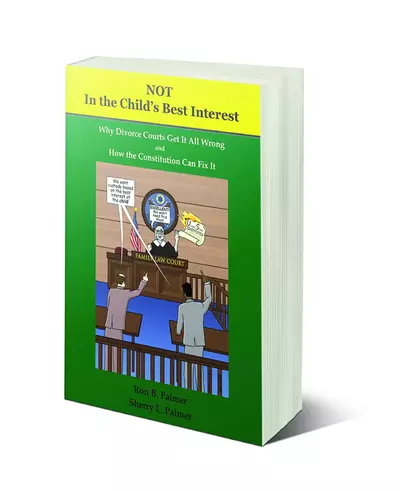Revolutionary child custody book that parents love and judges hate because it empowers fit parents while exposing that judges injure children every day. 20 chapters crammed full of life changing knowledge for a fraction of what an attorney charges for a single hour is a no brainer.
Classifications: Nonfiction | Law | Family Care/Parenting | Self-Help/Self-Improvement | How-To
Buy Now Explore our other books
Choose an option that suits you.
NOT In the Child's Best Interest
$34.95
You need to parent your child. Don't let a judge take that right from you. There are steps you can take now to protect your child far into the future?
Buy NowGet all three books NOT In the Child's Best Interest, Beginner's Guide to Family law, and Protecting Parent-child Bonds to receive 20% off
$48.68
20% Discount
Regularly $60.85
The struggle for Parental Rights in family law is real. These three books will give you hope, provide a wealth of unique information that you can get nowhere else, and show you a path to success.
Buy NowOnline books, motions, training, & discounted consultations
$24.95
Recurring monthly fee
If you prefer to read the books online, all four of our books are available for members to read. Valuable Enhanced Resources to help parents protect their child's future with Priority Access to our direct consulting services at discounted rates.
Buy NowA quick glance at the topics you'll learn

What our clients have said about our books and our services
The knowledge that there is a path forward gave me the confidence to go there more calm. $400/hr attorney beat by a pro per . . . . Sherry and Ron’s material helps you shift to a more favorable arena. It has shifted my entire outlook and perspective. I now walk into court more calm and confident. I think that new attitude is helping turn the tide.
Review by Dad in CaliforniaI’m grateful for the guidance of Ron and Sherry Palmer for giving me the push. Many of us would not be where we are if it were not for them.
Review by Mother in Connecticut.Your help in court gained me the right to see all of my children and, while it is far from perfect, you gave me the strength and knowledge to at least fight for our rights. For that, I will forever be grateful.
Review by MarioAnd I bought the motions package. I “won” a two-day hearing as a pro-se.
Review by Father in CaliforniaI read your book, fired my attorney and won my custody case against a corrupt judicial district, lawless county sheriff’s department and a group of crooked lawyers. Nobody believed in me except me. Your book is worth hundreds of dollars!
Review by Mother in KansasI felt like I had a voice and I could choose to say no if needed. . . . now I feel like we have a much better position to work on our new strategy. My son’s dad even let him call me later that day for the first time in years.
Review by Mother in TexasQuestions to ask? Fill out the form to contact me directly...